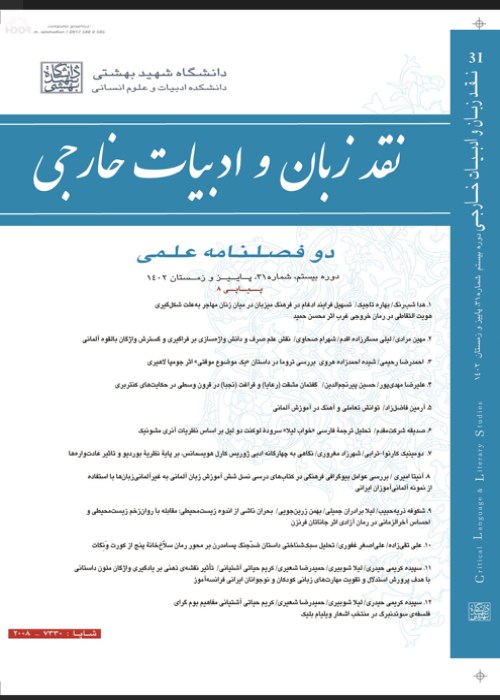Personality Development Crises in The Room by Harold Pinter
The Room, written in 1957 but published in 1960 is Harold Pinter’s first work and in a way includes the most frequently encountered theme of his other plays: an anxious and frightened character exposed to the possible threats of the external world emerging apparently from nowhere. In this article, it is reasoned that one of the causes of the anxiety of its leading character is her personality problems which are rooted in her inability to successfully pass the development stages. Thus, the psychological theory focusing on personality problems can function as the theoretical foundation on which the latent causes of her characterization can be investigated. For so doing, Erikson’s personality development stages can be illuminating since it includes all the periods from childhood to old age.Background of Study: The Room has been discussed from various perspectives including ontology, economics, class struggles, feminism, and Freudian psychoanalysis. Such a variety testifies to the potentialities of the play. One of the approaches that can best investigate the motivations of the chief character of the play is Erikson’s development stages which cover all years from childhood to old age. In Childhood and Society (1950) Erikson introduces eight stages of development from childhood up to old age. The key to his theory is that in each stage human beings deal with a confrontation from which they should successfully pass and safely enter the next stage to finally form their healthy personality. The childhood confrontations in order involve fundamental trust against fundamental distrust, independence against shame and hesitation, initiation against guilt, and hardworking against inferiority. According to Erikson in the case of achieving the first part of each pair, the virtues of hope, will, purpose, and mastery will be acquired, respectively. The remaining confrontations which occur after childhood include identity against role confusion, intimacy against isolation, and productivity against stagnation and successfully passing those leads to gaining the moral virtues of loyalty, love, and care, respectively. The last stage which happens at the time of adulthood is the integrity of the self against despair and the acquired virtue is wisdom. For this play, the last stage is of crucial importance since Rose is a middle-aged woman incapable of making sound and healthy relationships with her surroundings.
Erikson’s developmental stages are taken to be the theoretical framework of the study for analyzing Rose’s psychological complications. Focusing on these developmental stages, the personality problems of Rose are analyzed to answer questions such as her proper growth stage, her actual current stage; the appropriateness of her present behavior and motives with emotional needs of her age, and the main incentive in her caring, mother-like attitude towards her indifferent husband, and the hidden motives behind her patent behavior. It is believed that answering such questions can shed light on parts of this play that have been intentionally kept in darkness and can offer a better understanding of the play. In attempting to answer the above questions the following concepts regarding the personality of Rose are considered and their effect on her motives, behavior, and overall personality are discussed: insecurity in the middle –age period, fundamental distrust, obsessive care, and isolation and confusion.
It is concluded that all her personality lacks are rooted in her failure in passing the related growth stages and in her inability in acquiring the related virtues. Naturally, her behavior is confusing, improper for her age, and full of anxiety, distress, and fear. As a middle-aged woman, she must be in the stage of productivity against stagnation but in reality, she is too far from this stage. She is unable to show the possession of virtues such as identity, intimacy, loyalty, and love. She tries her best to achieve the security she has been deprived of since her childhood even of her obsessive caring for her husband, but all in vain. Therefore, the theory of Erikson regarding the growth stages and their effect on the personality is exactly applicable to this play and helps the readers to fill the gaps of the play by understanding the latent causes of Rose’s actions.
- حق عضویت دریافتی صرف حمایت از نشریات عضو و نگهداری، تکمیل و توسعه مگیران میشود.
- پرداخت حق اشتراک و دانلود مقالات اجازه بازنشر آن در سایر رسانههای چاپی و دیجیتال را به کاربر نمیدهد.


